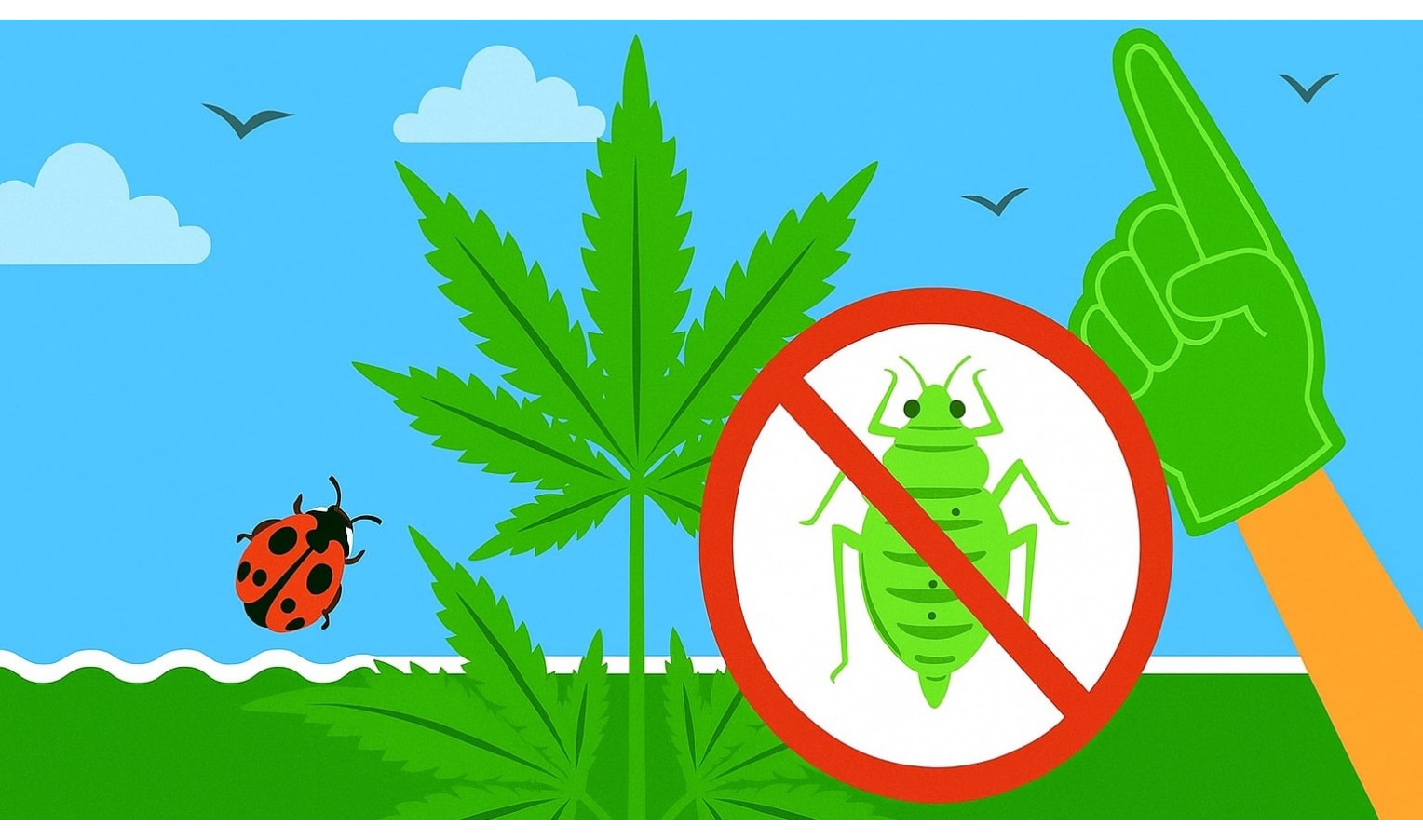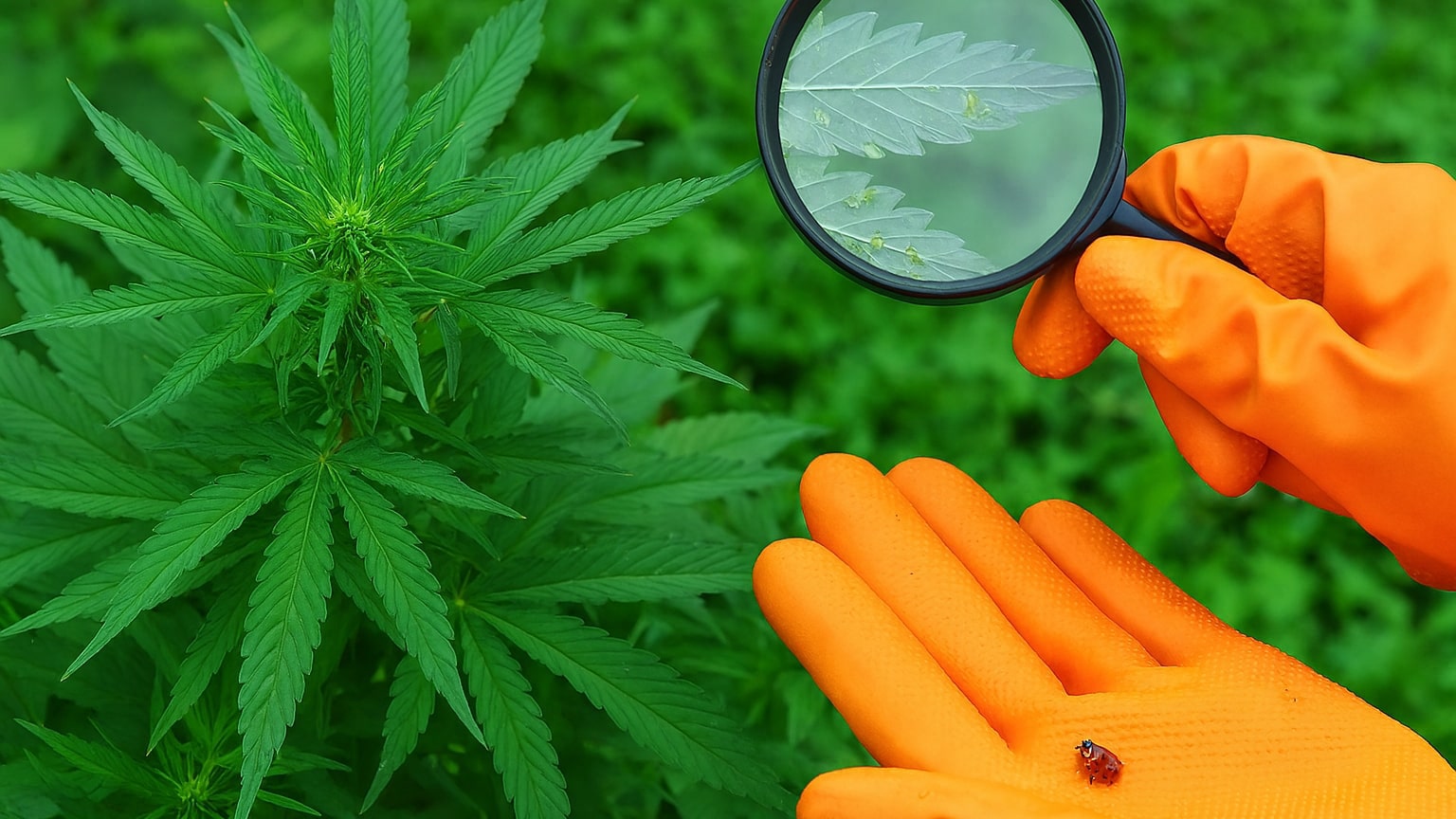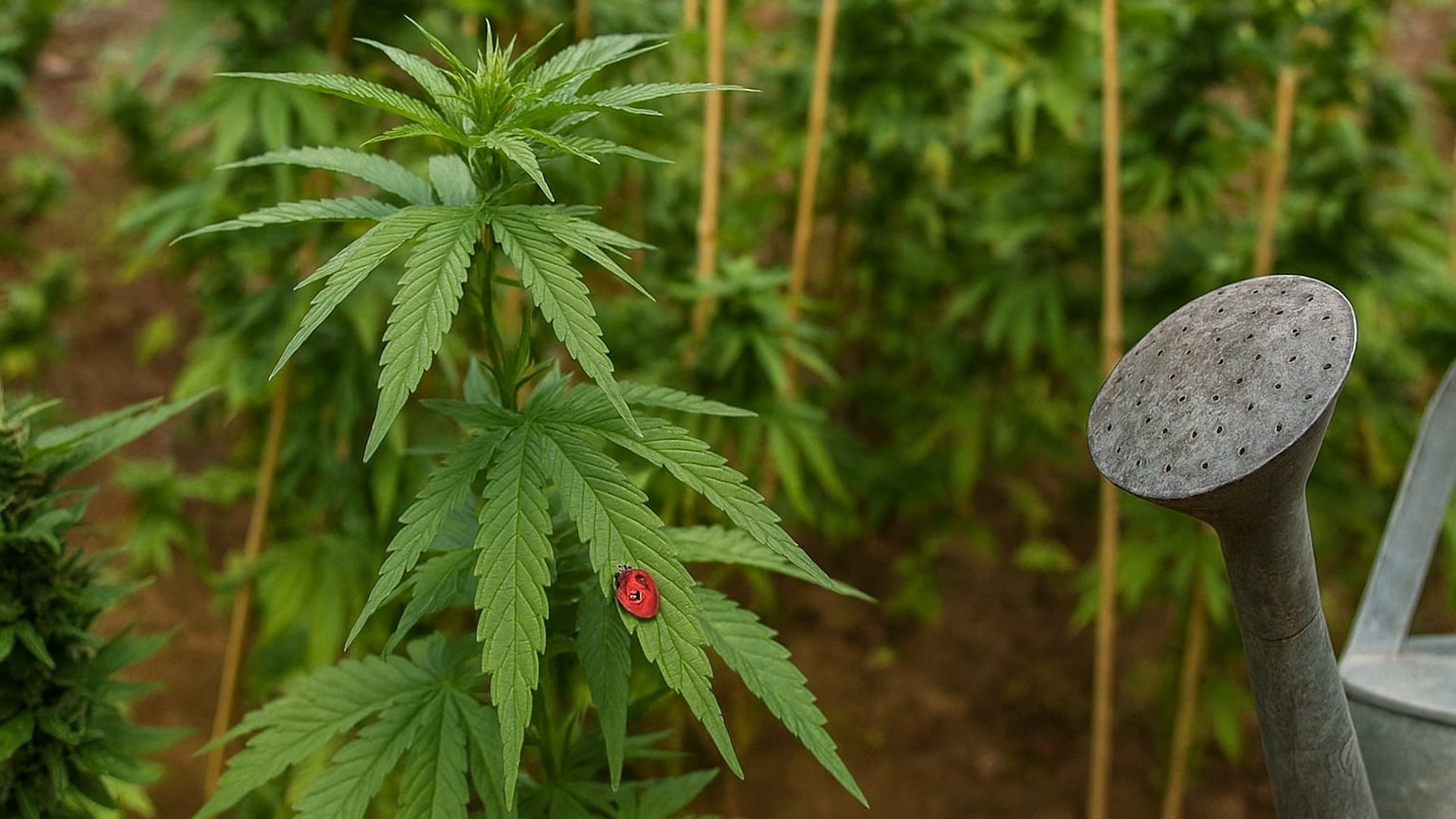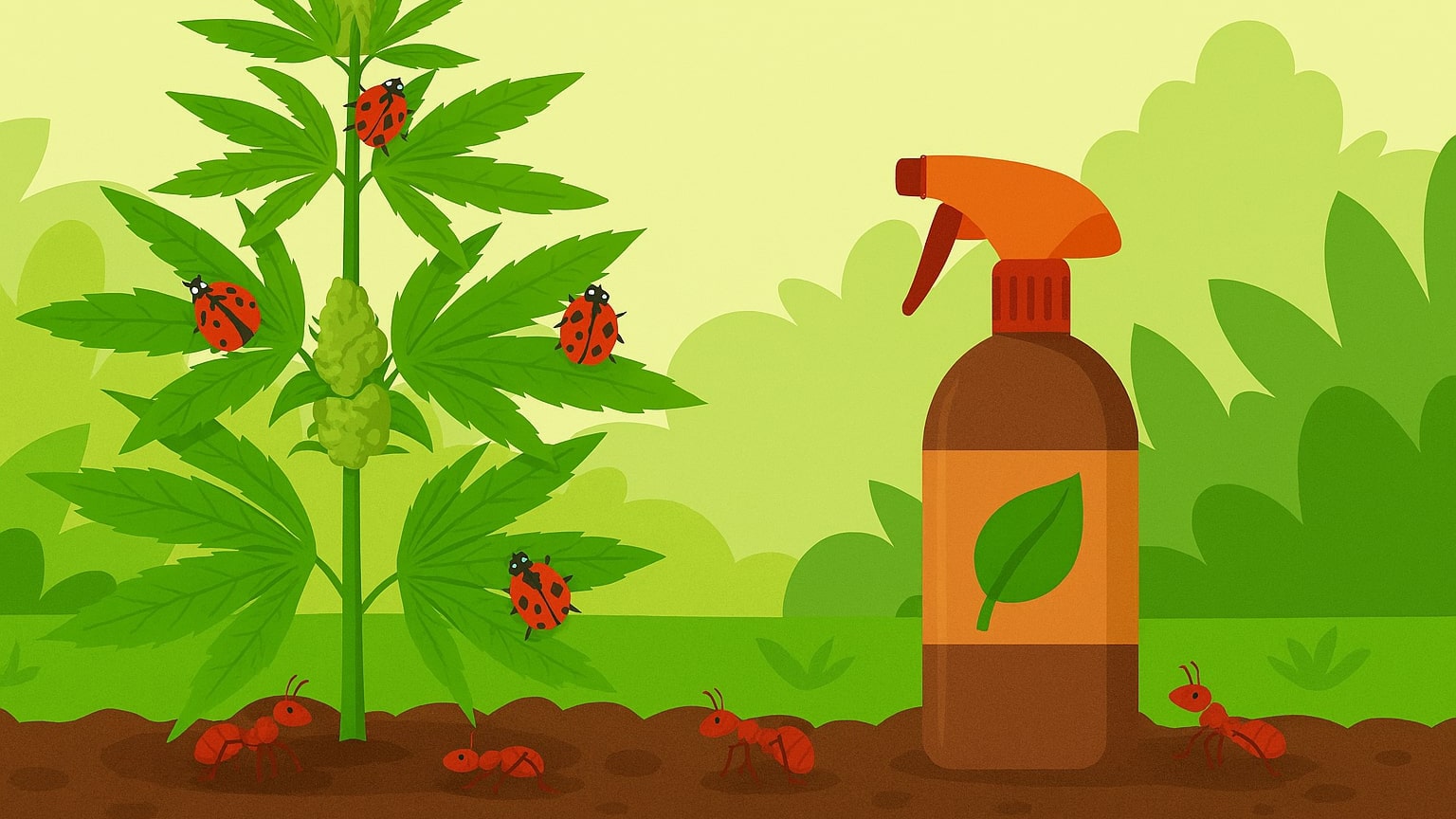0.00€
CheckoutHow to deal with pests without chemicals

Prevention of cannabis pests: the basis of organic protection

To avoid wondering how to deal with cannabis pests, it is important to create conditions in which insects cannot actively develop. A strong and healthy plant is better able to withstand threats, so prevention is the key to successful chemical-free cultivation.
Key recommendations from experienced growers:
- Maintain optimal humidity and air circulation to prevent the growth of fungi and parasites
- Remove dead leaves and plant debris in a timely manner, as pests can lay eggs there
- Regularly check the underside of leaves, as this is where infection most often begins
- Use only clean, disinfected soil
Proper plant nutrition is also very important. Organic fertilizers help strengthen the immunity of crops. That is why it is important to know how to use ash, banana peels, and other household fertilizers: these natural components enrich the soil with potassium, calcium, and micronutrients, making it less attractive to pests and promoting healthy root and leaf growth.
Biological and organic protection of hemp from pests

If a grower wants to understand how to protect cannabis plants from pests without pesticides, they should turn to natural and environmentally friendly solutions. Organic pest control for cannabis allows you to maintain the purity of your crop and biological balance.
The most effective methods are listed below:
- Natural plant protectors
The use of predatory insects is part of integrated pest management for hemp. Ladybugs actively destroy aphids, while predatory mites deal with spider mites, keeping plants healthy without chemical intervention. - Plant extracts and sprays
Natural remedies for cannabis pests, such as garlic, tobacco, or pepper infusions, repel insects without harming the plant itself. They are suitable for those who choose to combat cannabis pests using natural methods. - Strengthening plant immunity
The stronger the plant's nutrition, the more effective its own defense mechanisms are. At this stage, it is important to consider the question: What fertilizers does marijuana need at different stages of growth?
Young plants need nitrogen for leaf formation, and during the flowering phase, potassium and phosphorus are a priority. Such balanced organic fertilizers not only promote growth but also protect against insects. - Mechanical protection
Removing damaged areas, installing sticky traps, and protecting the soil with netting significantly reduce the risk of pest reproduction.
All these methods help build organic protection for hemp against pests, keeping the crop completely safe for health.
Use of safe methods against specific pests

When pests have already appeared, it is important to act quickly, but at the same time use chemical-free methods. Chemical-free methods for controlling cannabis pests can effectively stop the spread of parasites without harming the plants or the future harvest.
It is also very important to maintain the right microclimate conditions. Temperature and humidity during cannabis cultivation directly affect the risk of spider mites, aphids, and thrips appearing—too dry air attracts mites, and excessive humidity promotes the development of aphids and fungi.
| Pest | How to recognize | Safe method | Note |
| Spider mite | small dots on the leaves, cobwebs underneath them | Predatory mites + neem oil spray | Increased humidity slows down reproduction. |
| Aphids | sticking and twisting of leaves | Garlic infusion, ladybugs | Remove affected leaves |
| Thrips | silver stripes on a sheet plate | Sticky traps, plant extracts | Increase ventilation |
To avoid having to look for ways to get rid of spider mites on hemp naturally, it is better to carry out regular preventive spraying and plant inspections right away. Organic protection of hemp from pests requires attention, but it fully justifies itself with the quality of the final harvest.
This text is for informational purposes only and does not contain instructions for cultivation. Any actions involving plants of the Cannabis genus must comply with the laws of your country/region.
